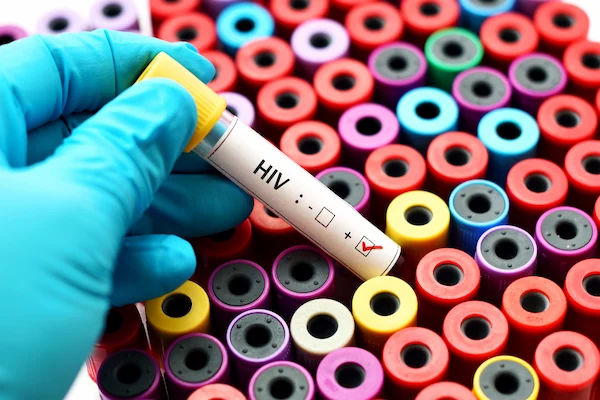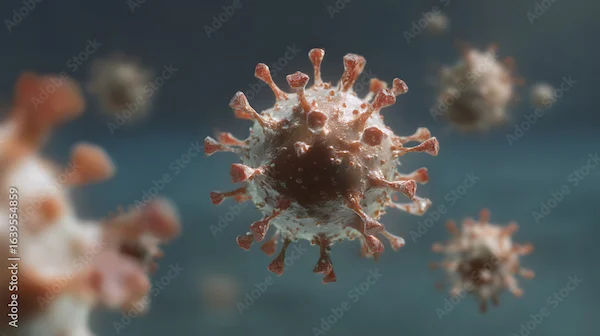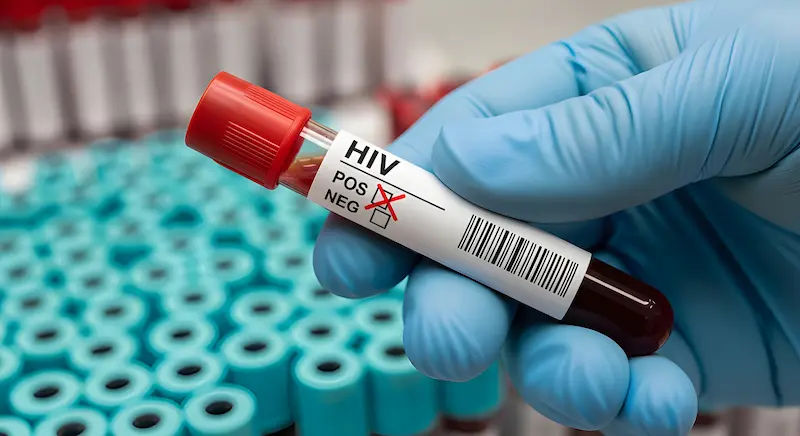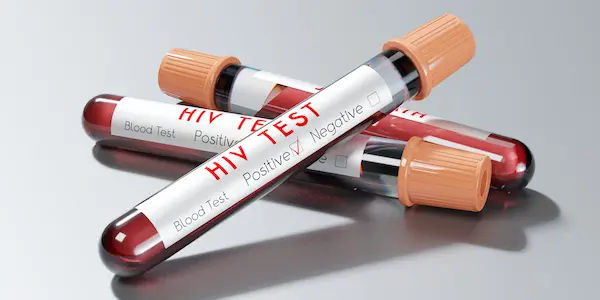Early Signs of HIV in Women
Understand the early signs of HIV in women, which can often be subtle or mimic common illnesses. Learn to recognize key symptoms like flu-like illness, skin changes, and specific gynecological issues, and why early testing is crucial.

Written by Dr. Mohammed Kamran
Reviewed by Dr. D Bhanu Prakash MBBS, AFIH, Advanced certificate in critical care medicine, Fellowship in critical care medicine
Last updated on 13th Jan, 2026
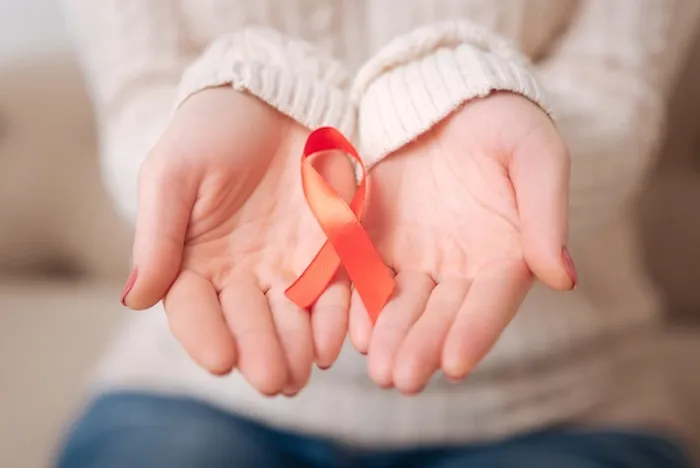
HIV (Human Immunodeficiency Virus) is a serious condition that weakens the immune system, making it harder for the body to fight infections. While HIV affects both men and women, some symptoms may appear differently in women. Recognizing the early signs can help in getting timely treatment and managing the condition effectively.
In this article, we’ll discuss the early signs of HIV in women, how the virus affects their health, and what steps to take if you suspect an infection.
Understanding HIV in Women
HIV attacks the immune system, specifically CD4 cells (a type of white blood cell). Without treatment, HIV can progress to AIDS (Acquired Immunodeficiency Syndrome), which is the most severe stage of the infection.
Women may experience unique symptoms due to differences in their reproductive and hormonal systems. Early detection is crucial because starting antiretroviral therapy (ART) early can help maintain a healthy immune system and prevent complications.
Early Signs of HIV in Women
The early stage of HIV, known as acute HIV infection, occurs within 2-4 weeks after exposure. During this phase, some women may experience flulike symptoms, while others may not notice any signs at all.
Get Your Symptoms Assessed
Common Early Symptoms in Women
Common early symptoms in women include:
1. Flulike Illness (Acute Retroviral Syndrome -ARS)
Fever
Chills
Fatigue
Muscle aches
Sore throat
Swollen lymph nodes
2. Skin Rashes
Red, itchy, or painful rashes that may appear on the face, chest, or hands.
3. Yeast Infections (Vaginal Candidiasis)
Frequent vaginal yeast infections that are harder to treat than usual.
Itching, burning, and thick white discharge.
4. Pelvic Inflammatory Disease (PID)
Pain in the lower abdomen
Unusual vaginal discharge
Pain during sex or urination
5. Irregular Menstrual Cycles
Heavier or lighter periods than usual
Missed periods
6. Recurrent Infections
Frequent urinary tract infections (UTIs)
Persistent colds or respiratory infections
7. Mouth Ulcers or Thrush
White patches or sores in the mouth
8. Unexplained Weight Loss
Rapid weight loss without changes in diet or exercise.
How HIV Affects Women’s Health Differently
Women with HIV may face additional health challenges, including:
Higher risk of vaginal infections (yeast infections, bacterial vaginosis).
Increased risk of cervical cancer due to weakened immunity.
Complications during pregnancy, including transmission to the baby.
Early menopause in some cases.
Regular gynecological checkups and HIV testing are essential for early detection and management.
When to Get Tested for HIV?
If you experience any of the above symptoms, especially after unprotected sex or sharing needles, it’s important to get tested. Early diagnosis helps in:
Starting treatment early to control the virus.
Reducing the risk of transmitting HIV to others.
Preventing complications like AIDS.
Who Should Get Tested?
Anyone who has had unprotected sex.
Women with multiple sexual partners.
Those who share needles or have a partner who does.
Pregnant women (to prevent mother-to-child transmission).
You can book a confidential HIV test through Apollo 24|7 for quick and accurate results.
Consult Top Specialists
Managing HIV: Tips for a Healthier Life
While there is no cure for HIV, antiretroviral therapy (ART) can help control the virus and allow people to live long, healthy lives. Here are some ways to manage HIV effectively:
1. Start Treatment Early
ART reduces the viral load, keeping the immune system strong.
Follow your doctor’s prescription strictly.
2. Maintain a Healthy Diet
Eat plenty of fruits, vegetables, lean proteins, and whole grains.
Stay hydrated and avoid excessive sugar or processed foods.
3. Exercise Regularly
Moderate exercise (walking, yoga, swimming) helps boost immunity.
4. Practice Safe Sex
Always use condoms to prevent transmission.
Discuss HIV status with your partner.
5. Get Regular Health Checkups
Monitor CD4 count and viral load.
Screen for other infections (like HPV, hepatitis).
6. Mental Health Support
HIV can cause stress or depression—seek counseling if needed.
Conclusion: Early Detection Saves Lives
Recognizing the early signs of HIV in women can lead to timely treatment and better health outcomes. If you suspect exposure or experience symptoms, get tested immediately. With proper care, women with HIV can lead healthy, fulfilling lives.
Need an HIV test or expert advice? Book a consultation with Apollo 24|7 today for confidential and compassionate care.
Consult Top Specialists
Consult Top Specialists

Dr. Johnson. S
General Practitioner
7 Years • MBBS MD(Preventive and social Medicine)
Pune
Apollo Clinic, Nigdi, Pune

Dr. Zulkarnain
General Physician
2 Years • MBBS, PGDM, FFM
Bengaluru
PRESTIGE SHANTHINIKETAN - SOCIETY CLINIC, Bengaluru

Dr Darshana R
General Physician/ Internal Medicine Specialist
15 Years • MBBS, MD, DNB (Internal Medicine), Diploma in Allergy, Asthma and Immunology , Fellowship in Diabetes
Bengaluru
Apollo Clinic, JP nagar, Bengaluru
(125+ Patients)

Dr. E Prabhakar Sastry
General Physician/ Internal Medicine Specialist
40 Years • MD(Internal Medicine)
Manikonda Jagir
Apollo Clinic, Manikonda, Manikonda Jagir
(175+ Patients)
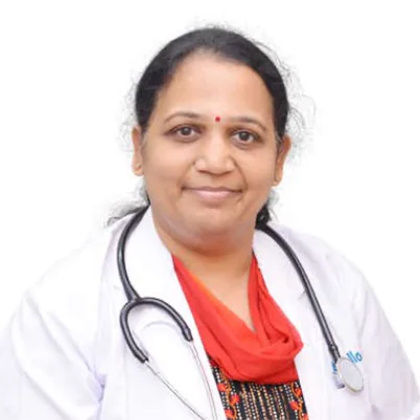
Dr. Renu Saraogi
General Physician/ Internal Medicine Specialist
21 Years • MBBS, PGDFM
Bangalore
Apollo Clinic Bellandur, Bangalore
(250+ Patients)
_1.webp)
